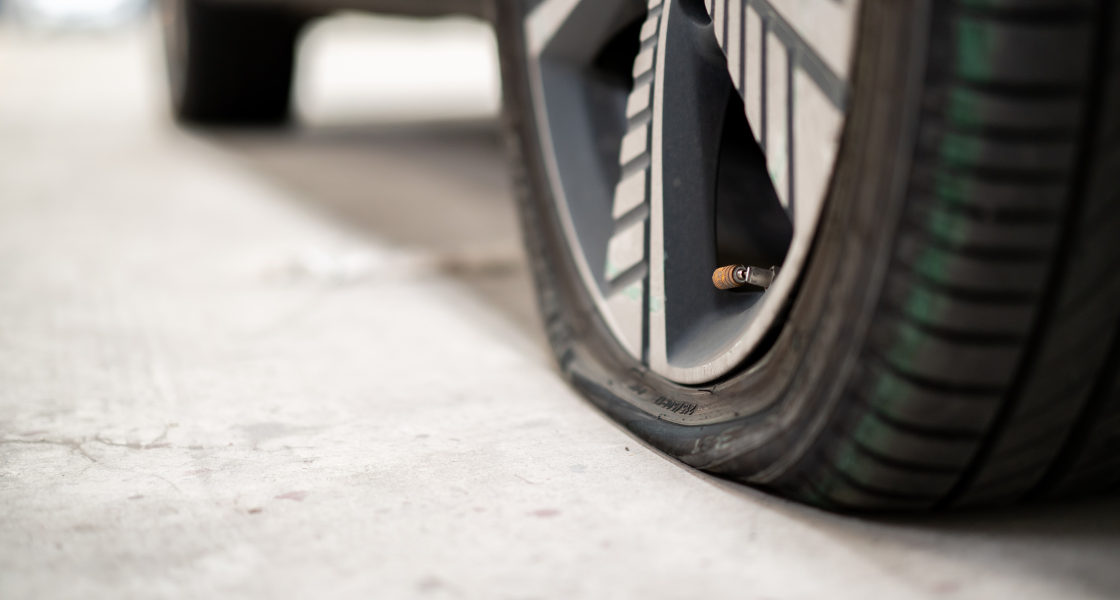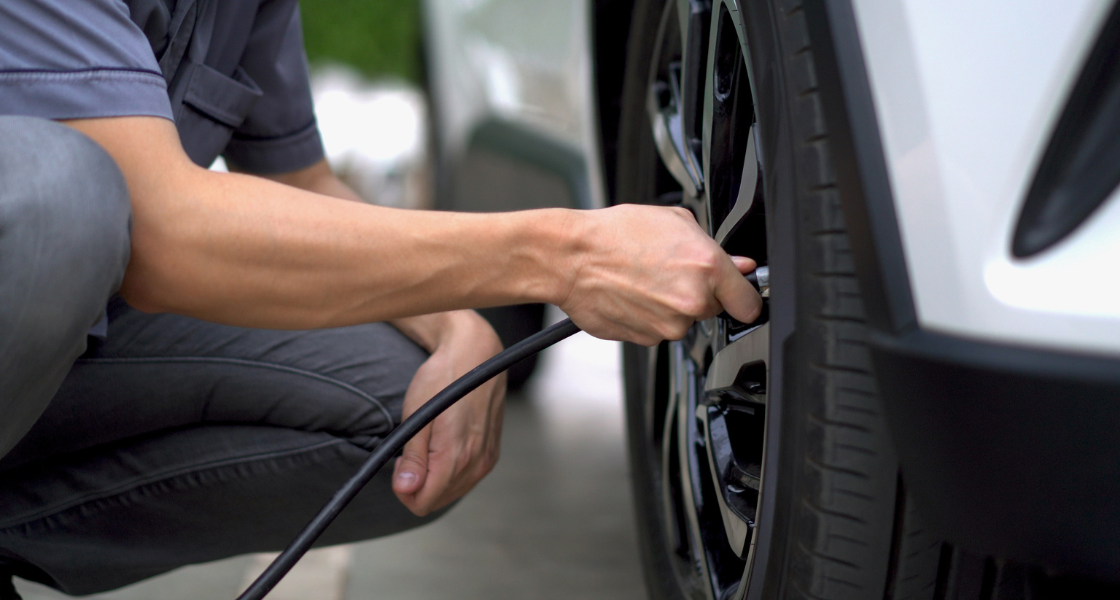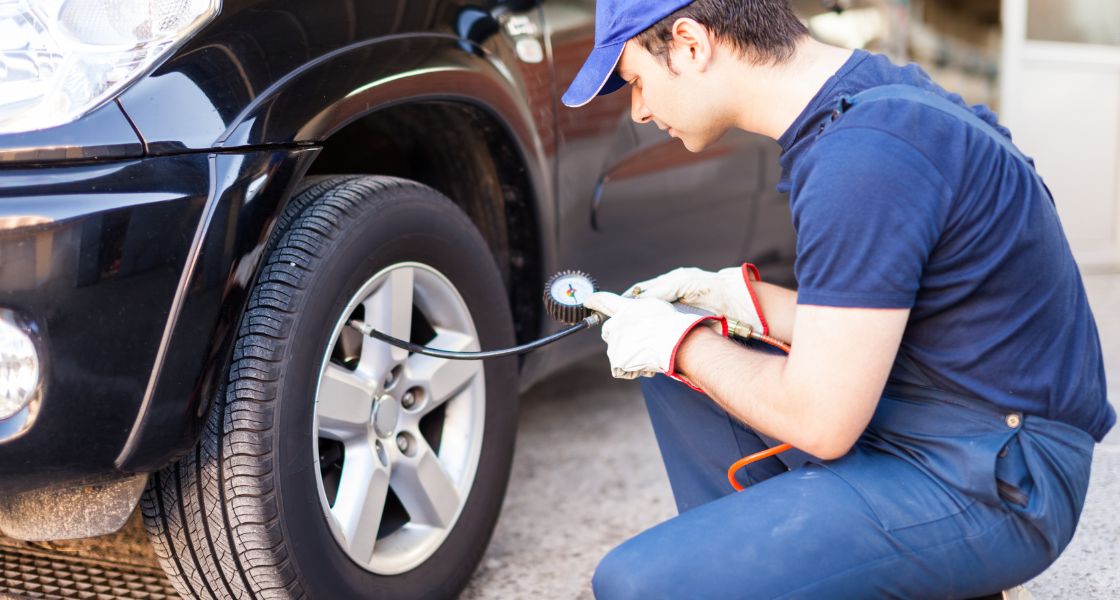Nothing dampens the pleasure of cruising in your car as much as a flat tire.
Picture this: you’re happily driving down the road when, out of nowhere, a resounding pop reaches your ears, leaving you stranded on the roadside, replacing a deflated tire.
In 2023, the inconvenience of dealing with flat tires, frequent pressure checks, and the constant need for reinflation should be a thing of the past. And it can be — with the groundbreaking solution of nitrogen tires!
Today’s article delves into the science behind tires filled with nitrogen, exploring the reasons behind its superior leak resistance to air tires. Let’s unlock the secrets behind nitrogen in tires and how they can revolutionize your driving experience!
Table of Contents
ToggleWhat Causes Tires to Leak?
Most often, you’re imagining a puncture as the culprit behind a tire leak. Some sort of debris or object on the road which punches a hole into your tire, creating a leak.
While this type of leak may be the most obvious, tire leaks can also be caused by a variety of factors.
Another potential cause of tire leaks is damage to the valve stem. The valve stem is responsible for allowing air to be added or released from the tire. When working properly, it allows air to be sealed inside of your tire securely. However, if the valve stem becomes worn out or is not tightly secured, it can result in air leakage (Source: Tech Tire Repairs).
Could Moisture Be a Hidden Culprit in Tire Leaks?
Tire leaks can sometimes be attributed to an underlying factor: the accumulation of moisture inside the tire.
Surprisingly, this moisture finds its way into the tire through the very thing that keeps it inflated — air. When compressed air is used to fill tires, it often contains trace amounts of water vapor.
Unfortunately, this water vapor can create an undesired buildup of moisture within the tire.
Excess moisture poses a threat to the tire’s integrity, making the valve cap vulnerable to cracking. A compromised valve cap can break the air-tight seal, resulting in pressure loss and potential leaks.
Does Tire Corrosion Lead to Tire Leaks?
Corrosion is also a culprit when it comes to leaky tires. When a wheel or its components, such as the rim or valve stem, are exposed to moisture, road salts, or other corrosive substances, they can gradually deteriorate over time. This corrosion weakens the seal between the tire and the wheel, leading to air leakage.
Similar to moisture, the buildup of rust and corrosion can damage the valve stem, causing it to malfunction and allowing air to escape. Regular maintenance and prompt attention to any signs of corrosion are essential to prevent tire leaks and ensure safe driving conditions (Source: Ride Time).
How Do You Know if a Tire Has a Slow Leak?
Several successful methods will help you test your tire pressure.
The first thing to check is your TPMS (Tire pressure monitoring sensor) in your car, which will turn on if it senses a significant loss in air pressure in one of your tires (Source: Bridgestone Tire).
If you don’t have a functional TPMS, you can also test the pressure of your tire manually. Indeed, it’s recommended that every driver manually test their tire pressure weekly to ensure that there aren’t any leaks.
Last, you can use the “spray method,” where you mix soap and water and spray it over the surface of your tire. If bubbles appear in the soap as the oxygen tries to escape through a potential leak, then your tire has a leak.

Why are Air-Filled Tires More Likely to Leak?
Air-filled tires are more prone to leaks compared to nitrogen in filled tires for a variety of reasons.
One of them is their higher moisture content. Compressed air contains varying amounts of water vapor. Over time, this moisture accumulates inside the tire, leading to corrosion and temperature changes.
In terms of temperature, as the air inside the tire heats up during driving, the moisture can expand and turn into water vapor. When the tire cools down, this vapor condenses, creating changes in pressure and potentially leading to slow leaks over time.
Air-filled tires are also more likely to leak because oxygen more easily escapes through the rubber walls of your tire. Oxygen molecules are smaller compared to nitrogen. As a result, they can permeate through the rubber material of the tire more readily. This process, known as permeation, occurs over time, contributing to a gradual loss of tire pressure. Consequently, air-filled tires require more frequent pressure checks and maintenance to ensure optimal performance.
Why are Nitrogen-Filled Tires More Resistant to Moisture and Corrosion?
Nitrogen-filled tires offer enhanced resistance to moisture and corrosion for several key reasons.
One primary factor is the significantly lower moisture content in nitrogen compared to compressed air. Unlike compressed air, nitrogen is dry air, meaning that it doesn’t contain water vapor when it gets pumped into your tires, reducing the risk of corrosion and preserving the integrity of the tire and its components.
This approach prevents moisture from ever getting inside your tire in the first place, protecting the life of your tires!
Should You Switch to Nitrogen-Filled Tires to Avoid Leaks?
Tires with nitrogen are an ideal choice for those who want to avoid the hassle of tire leaks as much as possible.
Nitrogen-inflated tires make it easy to improve tire life and preserve proper inflation pressure. Keeping this proper tire pressure is the best way to avoid the dangerous shortcomings of regular air tires.
Nitrogen tires are an easy choice for those who want better handling and lower risks of blowouts!

Switch to Nitrogen Inflation for Enhanced Tire Durability!
The science behind tire leaks points to nitrogen-filled tires as a more reliable and efficient option. While punctures and damage can still cause leaks in any tire, the lower moisture content and larger molecule size of nitrogen gas makes tires inflated with nitrogen less prone to leakage.
As the automotive industry continues to advance, the groundbreaking solution of nitrogen tires promises to make the inconvenience of dealing with flat tires, pressure checks, and constant reinflation a thing of the past, revolutionizing the driving experience for vehicle owners in 2023 and beyond.
So, if you seek a longer-lasting and more reliable tire performance, nitrogen-filled tires offer a compelling solution to keep you safely on the road without being plagued by unexpected leaks!
At Fuel and Tire Saver, we offer a nitrogen tire inflation service as a cost-effective solution for optimizing tire performance!
Our team is committed to the science behind nitrogen tire inflation and can work with you to develop a customized tire maintenance plan that meets the unique needs of your fleet.
Contact Fuel and Tire Saver and check out our resources page to learn more about our nitrogen-filled tires and how we can help keep your fleet rolling smoothly!
References
- Common Causes for Slow Tire Leaks & How To Fix Them — Access date: 20 July 2023.
- How To Diagnose (And Fix) A Slow Tire Leak – Ride Time — Access date: 20 July 2023.
- WHAT IS TPMS & HOW DOES IT WORK? — Access date: 20 July 2023.


